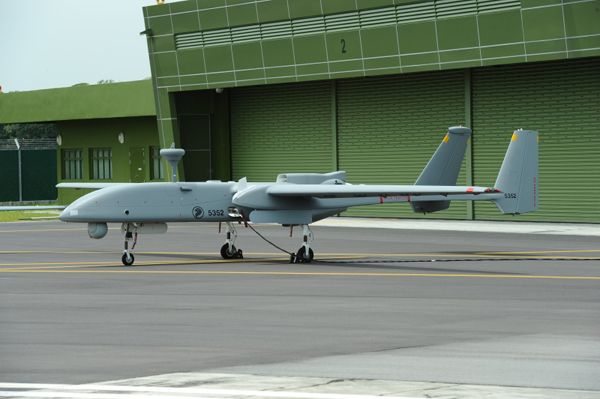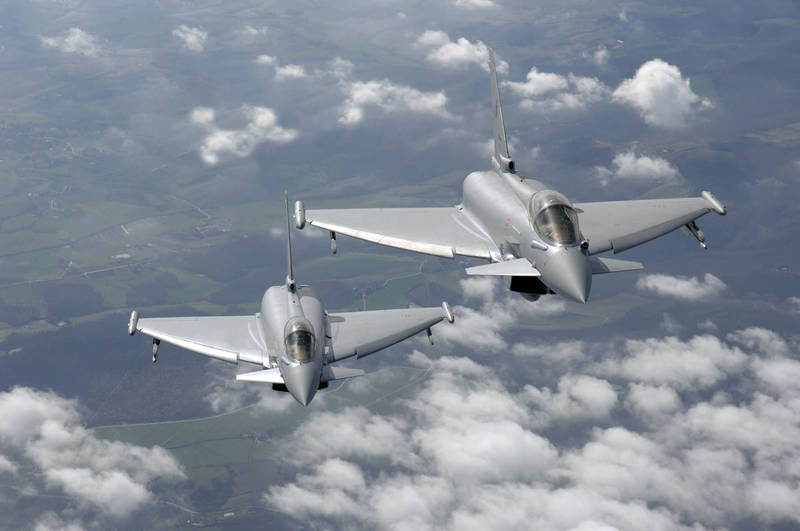The Republic of Singapore Air Force (RSAF) enhanced the intelligence, surveillance and reconnaissance (ISR) capabilities of the 3rd Generation Singapore Armed Forces (SAF) as it inaugurated the Heron 1 Unmanned Aerial Vehicle (UAV) into 119 Squadron (SQN) on 23 May.
Minister for Defence Dr Ng Eng Hen, who officiated at the inauguration ceremony at Murai Camp, pointed out that the SAF’s vision for UAVs started as early as the 70s, quoting Singapore’s first Defence Minister Dr GohKengSwee: “For our kind of terrain, we must have Remotely Piloted Vehicles. We must see the enemy without being seen.”
“The UAVs have realised the vision of SAF’s founding pioneers but only through continued investments to develop this capability,” he added. “As a result, the SAF today is an advanced user of UAVs… (which) are used routinely in exercises as well as in operations.”
Highlighting the importance of the UAV in transforming the SAF into a modern and effective fighting force, Dr Ng noted that the Heron 1 UAV will “provide our commanders, planners and soldiers on the ground (with) better situational awareness to make timely and informed decisions to engage the adversary decisively and complete their missions effectively”.
Featuring state-of-the-art avionics, detection capabilities and communication systems, the Heron 1 UAV will replace the Searcher-class UAV that has been in service since 1994.
Compared to its predecessor, which has a maximum operating altitude of 10,000 feet, the Heron 1 UAV can fly twice as high at 20,000 feet. It has a flight endurance of over 24 hours, more than three times that of the Searcher UAV (eight hours). Furthermore, the Heron 1 UAV has a maximum operating range of 200km, double that of the Searcher-class.
The advanced UAV is also equipped with an Automatic Take Off and Landing (ATOL) system, which allows a desired flight route to be scheduled prior to launch, and is able to return to a pre-designated recovery point at the end of its mission. This enhances the timeliness in which information is disseminated, as UAV operators can focus on collecting and processing information instead of flight operations.
Lieutenant-Colonel (LTC) Kenneth Won, Commanding Officer of 119 SQN, was proud of his squadron’s achievements in being the first UAV squadron to operate the Heron 1.
“It’s not always been smooth-sailing; there have been a lot of challenges along the way but we’ve achieved a key milestone in bringing in this new capability. More importantly, we have built a team in which the operational and logistics crew are strongly integrated.”
He noted that the Heron 1 UAV’s advanced surveillance and reconnaissance capabilities will provide the RSAF with “sharper eyes” in the skies, which will be an important component in the complex battle environment of the future.
Officer Commanding of 119 SQN and UAV Pilot Major (MAJ) Low Jun Horng commented on how the improved systems of the Heron 1 UAV have made it more mission-effective: “The Heron 1 provides us with an enhanced situational awareness of the battlefield as it has better detection capability and three times the flight endurance of the Searcher UAV… It also gives us the ability to see things in colour as compared to the monochrome video system of the Searcher UAV. This allows us to detect targets that could not have been detected previously with the Searcher.”
Paying tribute to the personnel of 119 SQN, Dr Ng said: “The advanced surveillance and reconnaissance capabilities of the Heron 1 UAV are, however, only as effective as the people who operate and maintain them. I would like therefore to commend all of you, the men and women of 119 Squadron, who have worked tirelessly in the last year to ready the Heron 1 UAV systems to support the SAF’s operations.”
Senior Parliamentary Secretary for Defence and National Development Dr Mohamad Maliki Bin Osman, Chief of Air Force Major-General Ng CheeMeng and senior officers from the SAF were also present at the ceremony.











